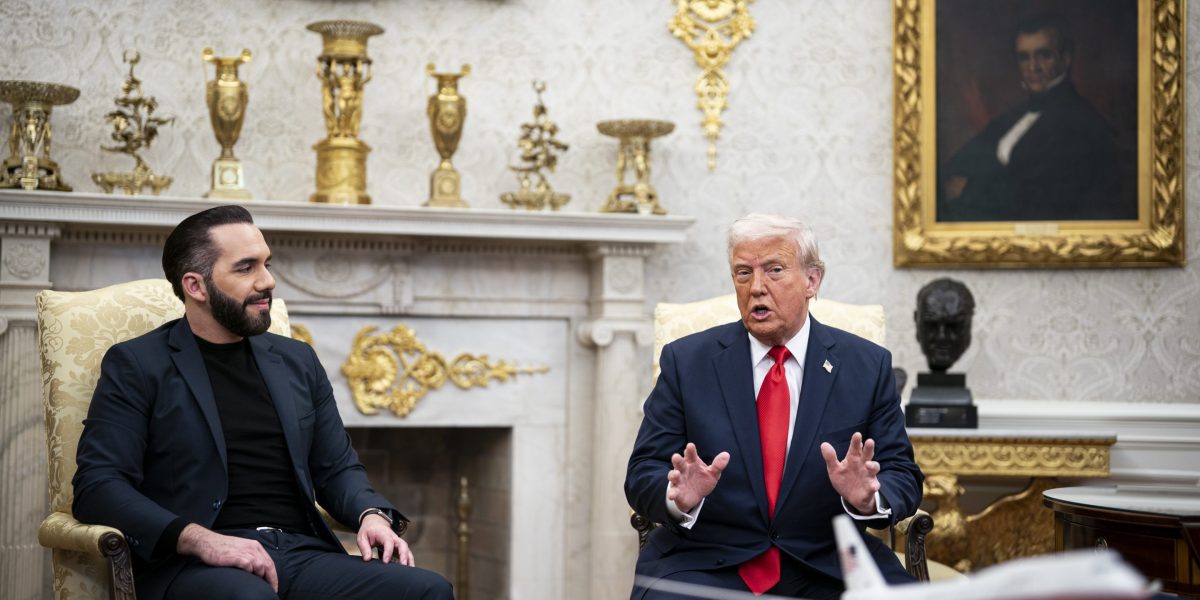- The Trump administration has shown it is willing to defy federal courts and even the Supreme Court, escalating a conflict that could result in a constitutional crisis. Experts say if Trump ignores court rulings, the reputation of the U.S. as a safe haven for investment will falter.
The Trump administration’s recent willingness to defy the courts may lead to a crisis that could cripple the United States’ reputation as an attractive destination for investment, experts say.
While arguably not yet at the scale of a full-blown constitutional crisis, Trump’s lax adherence to court orders has law experts warning that if faith in the justice system deteriorates, so will investment.
“If Trump ignores court rulings, that will be the end of the rule of law,” University of Denver law professor Ian Farrell told Fortune. “To put it another way, the United States will effectively have no laws for foreign investors to rely on. There would be nothing to stop the federal government from seizing any and all assets of a foreign investor for no reason whatsoever.”
It’s unclear if ratings agencies would officially downgrade the credit worthiness of American debt, even as they have done so in similar situations for other countries like Mexico, but investors may think twice about investing in government debt, said Jason DeLorenzo, the owner of registered investment adviser Ad Deum Funds.
“I don’t know if rating agencies will downgrade because of it, but I’m sure in people’s minds, the instability of our government would call into question the risk free nature that U.S. Treasuries are treated with,” DeLorenzo told Fortune.
Twice in the same day, President Trump and his administration seemed to repudiate the courts. First, the Trump administration ignored a federal court order by denying reporters from the Associated Press access to an Oval Office press conference with El Salvador president Nayib Bukele. Trump previously criticized the AP for not adopting his rechristening of the Gulf of Mexico.
Later, during the event, Trump sat by as self-proclaimed “dictator” Bukele said he would not return Kilmar Abrego Garcia, an undocumented immigrant from El Salvador protected by a judge from deportation who was mistakenly deported to a maximum security prison in his home country. Attorney General Pam Bondi said Garcia would not return to the U.S. even after the Supreme Court upheld a lower court order that demanded the administration “facilitate” his release from custody.
It’s not the first time a U.S. president has spurned the country’s highest court, said Craig Smith, an adjunct law professor at The Colleges of Law. In 1832, President Andrew Jackson ignored a ruling by the Supreme Court when he forcibly relocated the Cherokee people west along the “Trail of Tears.” At the time, Jackson reportedly challenged Chief Justice John Marshall by saying “Chief Justice Marshall has made his decision, now let him enforce it.”
The earlier conflict highlights a major issue regarding Supreme Court rulings in that enforcement for court orders is left mostly to the executive branch, said Smith.
“Article III of the Constitution establishes the Supreme Court as having the last word on the law. The problem is that it and the lower federal courts have few options as to ways to enforce their rulings and orders,” Smith told Fortune.
Only Congress can ultimately remove the president from power through a difficult impeachment process. Although several presidents have been impeached by the House of Representatives, none has ever been convicted by the Senate and removed from office. President Trump was impeached twice, in 2019 and 2021, but was ultimately acquitted by the Senate.
For now, the conflict over the deported Garcia has escalated the conflict between Trump and the Supreme Court, but both parties are treading carefully, said UC Berkeley law professor Stavros Gadinis.
“So far, both parties are looking for ways to avoid this ultimate showdown,” Gadinis told Fortune.
“Trump is careful to claim presidential authority as legally provided, and present his reaction to court orders as impractical or impossible (e.g., bringing back mistakenly deported individuals). And courts are careful to avoid declaring presidential orders as outright illegal.”
This story was originally featured on Fortune.com
Source link

